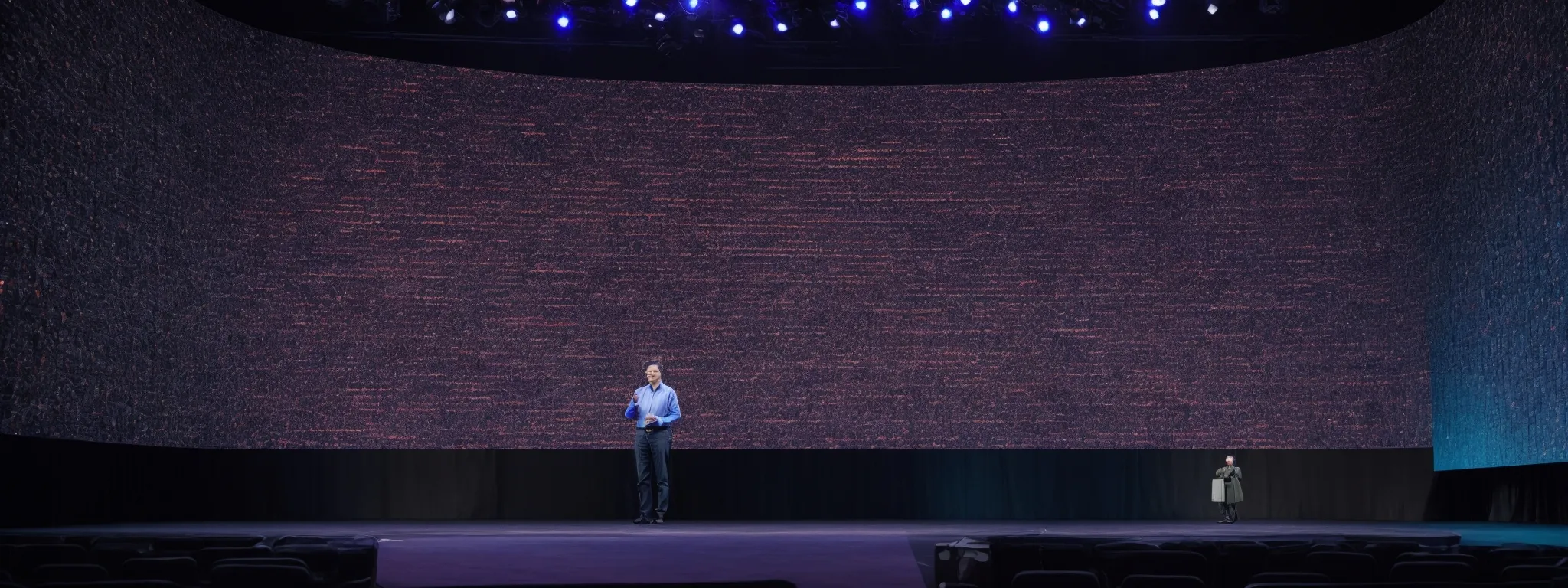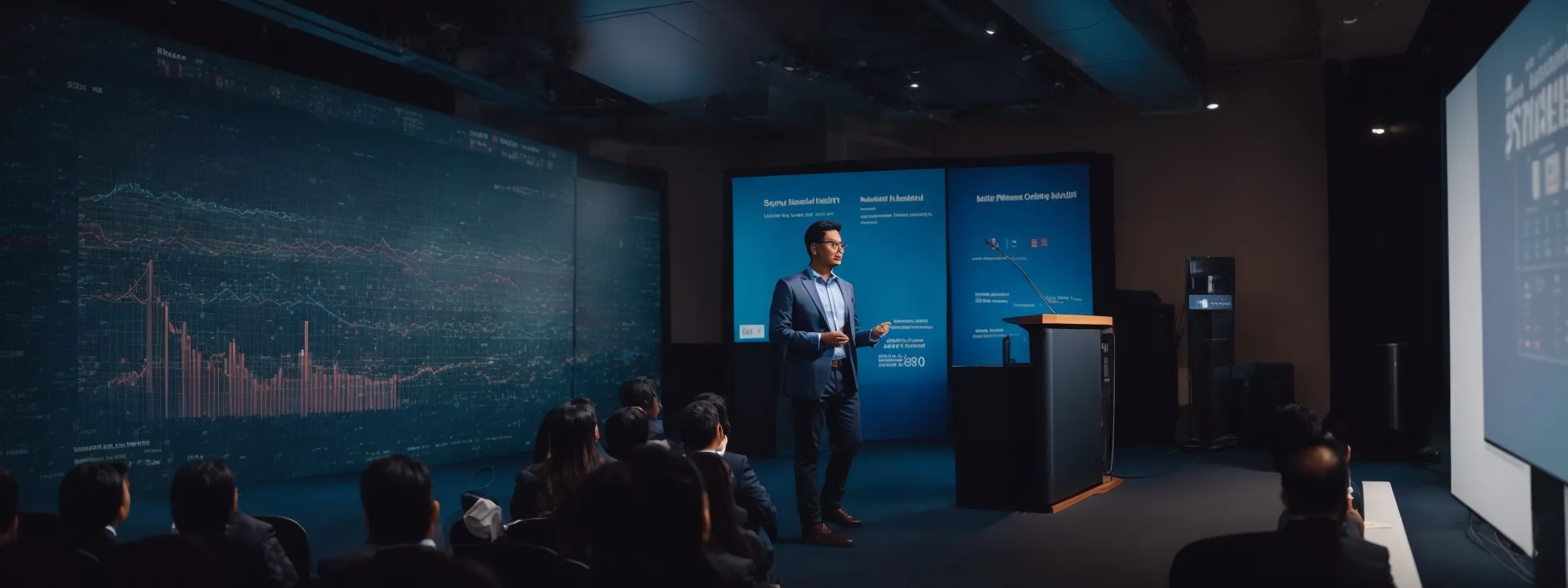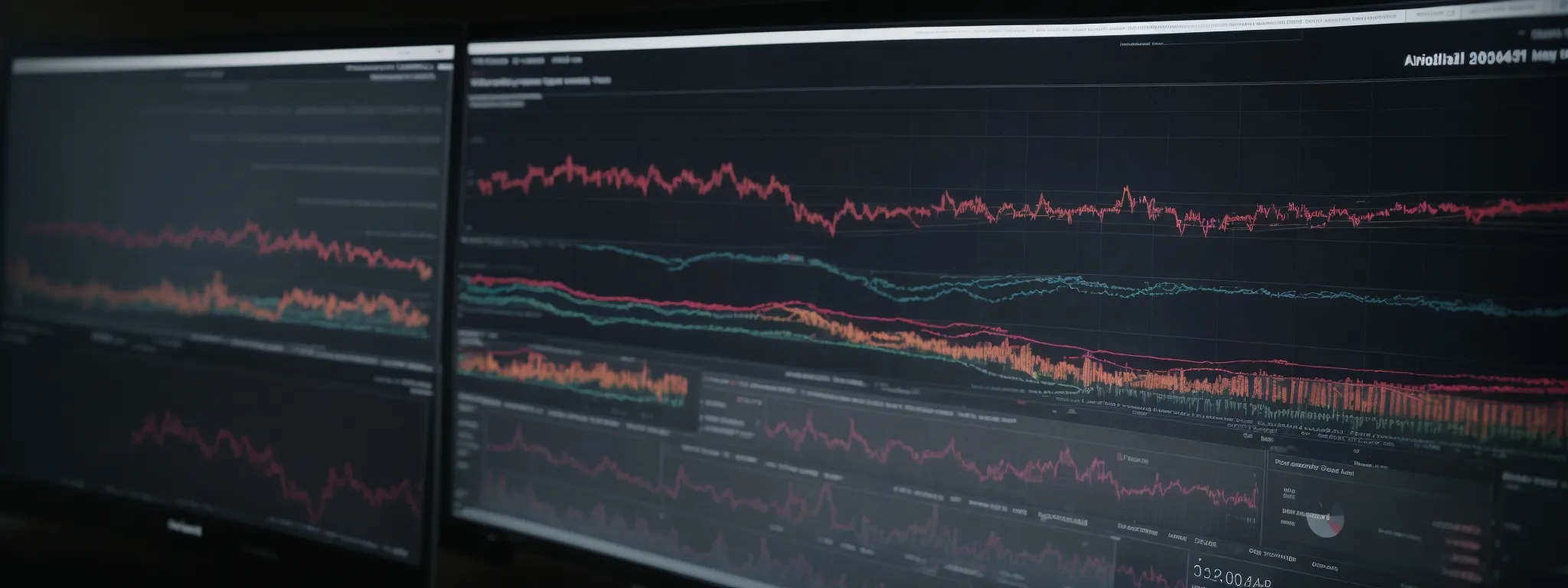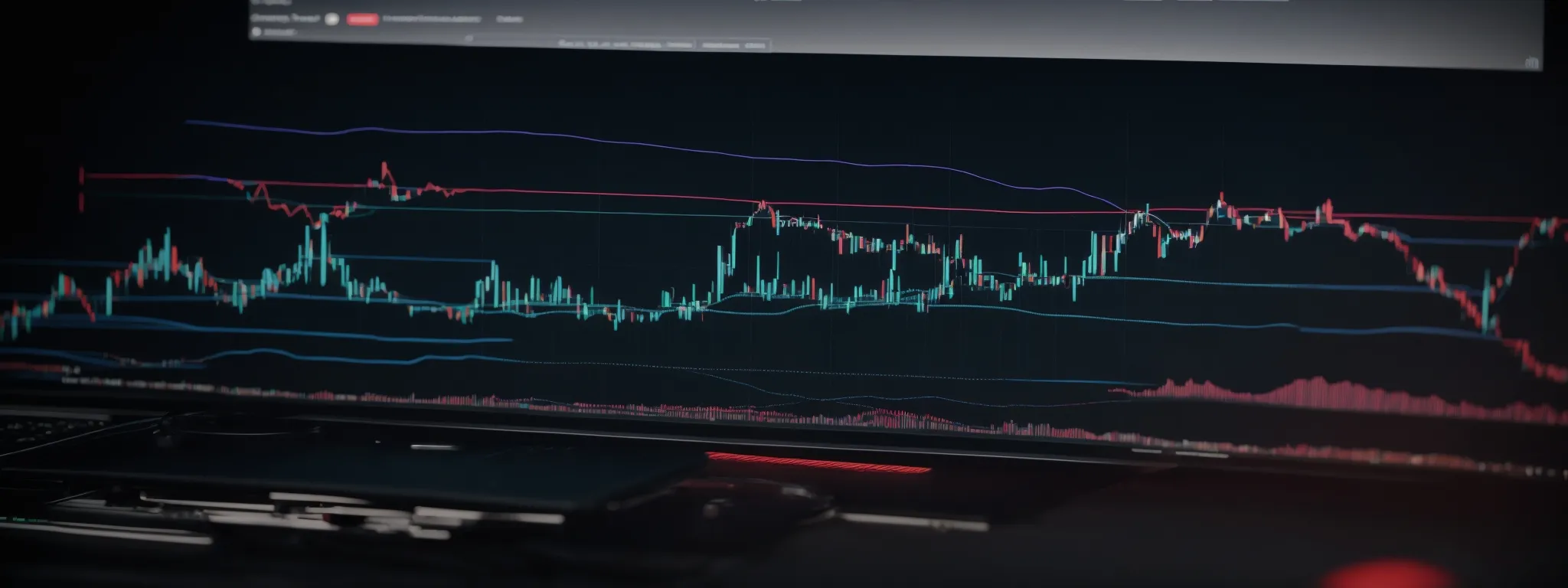Machine Learning Impact SEO Interview Eric Enge
Exploring Machine Learning’s Influence on SEO: An Interview With Eric Enge Machine learning has become a pivotal force in shaping the landscape of Search Engine Optimization, offering […]
Exploring Machine Learning’s Influence on SEO: An Interview With Eric Enge
Machine learning has become a pivotal force in shaping the landscape of Search Engine Optimization, offering unparalleled insights and automation capabilities that are transforming how SEO experts approach their craft.
Eric Enge, a renowned figure in the SEO community and a leading voice on the intersection of machine learning and digital marketing, shares his valuable perspectives in this eye-opening dialogue.
Delving into the nuances of emerging technologies, Enge elucidates the subtle ways in which AI is reinventing keyword research, link building, and content strategies.
His forecast on the future of SEO and machine learning integration illuminates a path forward for professionals and businesses alike.
Keep reading to unlock the potential of machine learning for your SEO endeavors and elevate your online presence with cutting-edge technology.
Key Takeaways
- Machine Learning Revolutionizes SEO by Enhancing the Prediction of Trends and User Behavior
- Artificial Intelligence in SEO Enables More Personalized Search Experiences With Emphasis on User Intent
- SEO Is Evolving Beyond Keyword Density to Focus on Contextual Relevance and User Engagement
- AI-driven Link Building Strategies Prioritize Quality and Contextual Relevance Over Sheer Link Volume
- Machine Learning in SEO Demands a Synergy Between Technical Acumen and Creative Marketing Techniques
Unveiling Eric Enge’s Insights on Machine Learning in SEO

In an era where machine learning revolutionizes industries, SEO stands at a captivating intersection of data science and marketing.
At the forefront of this dynamic paradigm is Eric Enge, a renowned figure in digital marketing who weaves together the threads of technical expertise and strategic foresight.
This dialogue peels back the layers of commonplace understanding of machine learning’s role within SEO, seeking a deeper comprehension of the changing landscape.
Engaging in the examination of machine learning’s impact on SEO practices, Enge casts light on how artificial intelligence is poised to redefine search engine optimization and why companies should recalibrate their SEO strategies to harness the full potential of this technology.
Understanding the Basics of Machine Learning and SEO
Machine learning represents a transformative force in SEO, equipping search engines with the capability to learn from data without being explicitly programmed. This innovation empowers search algorithms to evolve, refining their accuracy in delivering relevant search results to users.
By integrating machine learning, search engines can discern patterns and preferences in user behavior, which in turn informs how they rank web pages. It is crucial for SEO professionals to comprehend this evolution as it significantly alters traditional optimization methodologies.
- Machine learning enhances search algorithms for improved relevance and accuracy.
- Understanding user behavior becomes essential in an AI-driven SEO landscape.
- SEO practitioners must adapt strategies in response to sophisticated machine learning advancements.
How Eric Enge Sees the Future of SEO With AI
Eric Enge foresees a world where machine learning not only refines the algorithms of search engines but also fundamentally transforms the approach professionals must take in SEO. He postulates that leveraging AI could lead to more personalized search experiences, increasing the significance of micro-moments and the pivotal role of user intent in content strategy.
According to Enge, the future of SEO will necessitate a synergy between technical acumen and creative marketing techniques, with machine learning serving as the bridge between data-rich insights and user-centric optimization. He emphasizes the importance of preparing for search engines that anticipate user needs rather than merely responding to them, marking a paradigm shift in SEO methodologies.
The Impact of Machine Learning on SEO Strategies
Eric Enge’s Perspective on machine learning’s influence is transformative for those immersed in SEO strategies. He envisions a future where optimization transcends keyword density and backlink count, instead centering around an intricate understanding of machine-driven behavioral analysis and user intent.
As algorithms become adept at interpreting nuanced patterns within vast datasets, SEO experts will find a shift in focus towards creating content that aligns seamlessly with the sophisticated expectations born from machine learning progressions:
- Machine learning aids in the prediction of trends, helping to shape SEO tactics with foresight.
- Strategies must evolve to prioritize user experience, which influences machine learning outcomes.
- Adoption of machine learning analysis tools becomes imperative for maintaining competitive edge.
The Evolution of SEO Through Machine Learning Technology

In the dynamic landscape of digital marketing, SEO has undergone significant transformations, shaping the way brands interact with their audience and vie for visibility in the Google search results.
As technological innovation becomes deeply ingrained in the fabric of search engine algorithms, expert Eric Enge takes the helm to guide professionals through the seismic shifts led by machine learning.
This section embarks on a journey to trace the history of SEO before the advent of machine learning, delineates the critical developments that this technology has brought to SEO, and ventures into forecasting the forthcoming shifts in SEO tactics that professionals should anticipate and embrace.
Tracing the History of SEO Before Machine Learning
Before the integration of machine learning into search engine algorithms, SEO was a discipline grounded in the understanding of specific ranking factors. Webmasters focused on optimizing websites with keyword-rich content, meta tags, and amassing backlinks to signal relevance and authority to search engines.
The pre-machine learning era of SEO was comparatively straightforward, revolving around static rule-based algorithms. This period was characterized by tactics that could be reliably replicated across different websites to achieve higher search rankings:
| SEO Factor | Description | Pre-Machine Learning Approach |
|---|---|---|
| Keywords | Terms or phrases relevant to website content | Strategic placement in titles, headers, and body text |
| Backlinks | Incoming hyperlinks from other websites | Building a volume of incoming links to enhance authority |
| Meta Tags | HTML tags providing metadata about the web page | Optimizing meta descriptions and keywords for better CTR |
Key Developments in Machine Learning Affecting SEO
Machine learning has propelled Google’s search algorithm forward, pivoting from static heuristics to dynamic, learning-based models. This evolution marks a Shift From Explicit Programming to algorithms that adapt over time, learning from user behavior to improve search result accuracy and relevance.
One of the most profound developments is the introduction of RankBrain, Google’s machine learning-based component designed to interpret complex, multi-faceted queries. This system enhances Google’s understanding of context and user intent, leading to more nuanced and precise search results:
- RankBrain interprets the context of queries, refining the search engine’s grasp on user intent.
- Machine learning analyzes vast amounts of data, allowing for real-time adjustments to search rankings based on trending topics and emerging patterns.
- Continuous learning through user interactions facilitates the personalization of search results, improving user experience and accuracy.
Predicting the Next Big Change in SEO Tactics
Eric Enge anticipates that the Integration of Machine Learning Into SEO will emphasize the need for adaptable content strategies. SEO experts will likely prioritize dynamic content creation that serves evolving user needs, ideally positioning brands to be agile in response to algorithmic changes.
This anticipated evolution in SEO tactics signals a departure from a purely systemic approach to content optimization. Instead, as machine learning continues to mature, a balanced blend of creativity and analytical precision will define the most effective SEO strategies, as professionals reconcile the art of SEO with science.
How Machine Learning Is Reshaping Keyword Research

The incursion of machine learning into the realm of search engine optimization has been a game-changer, particularly in terms of keyword research—a fundamental element of SEO.
Eric Enge, a titan in the digital marketing sector, sheds light on this shift, revealing the profound ways in which artificial intelligence reframes traditional keyword analysis and selection.
With the burgeoning role of predictive analytics uncovering nascent trends and the capacity to refine content strategies through machine-generated insights, the landscape of SEO unfurls with possibilities not seen before.
These developments are not only transforming keyword research but redefining the contours by which SEO professionals approach every aspect of campaign strategy.
New Approaches to Keyword Analysis and Selection
The advent of machine learning in SEO has given rise to novel methodologies in keyword analysis and selection. SEO experts, guided by advanced algorithms and predictive analytics, now have the capacity to uncover emerging trends and preferences, allowing for the optimization of content in alignment with current and anticipated user interests.
This analytical revolution underpins a strategic overhaul where emphasis shifts from sheer search volume to intent-matching and the contextual relevance of keywords. Driven by the insights from data science services, professionals can craft SEO content strategies that resonate more deeply with the audience, elevating user engagement and search ranking potential:
- Emerging trends are identified through predictive analytics, informing keyword selection.
- Contextual relevance is prioritized over high search volume for stronger user intent alignment.
- Data-driven insights guide the crafting of nuanced, audience-centric content strategies.
The Role of Predictive Analytics in Keyword Trends
Predictive analytics stands as a sentry on the frontier of SEO, signaling the ebb and flow of keyword popularity before it becomes visible to the naked eye. Within this realm, Eric Enge champions a forward-thinking approach, utilizing such analytics to navigate the future terrain of keyword relevance and search behavior.
Under the guidance of Enge, SEO professionals are harnessing the prowess of predictive tools to pinpoint shifts in search query patterns, ensuring their content strategies remain ahead of the curve. This foresight is instrumental in constructing keyword frameworks that not only meet the current demands of searchers but also adapt to emerging trends, setting the stage for enduring online visibility.
Tailoring Content Strategies With Machine Learning Insights
Delving deeper into the realm of content strategy, Eric Enge showcases how machine learning insights are instrumental for SEO specialists in customizing their content to the nuanced demands of the audience. This approach recognizes the complexity of search intent, empowering writers to create content that resonates on a deeper, more personalized level, thereby enhancing user experience and satisfaction.
Under the guidance of these advanced insights, content crafted by SEO professionals has the potential to not only reach but engage its intended audience more effectively. By integrating Data-Driven Machine Learning Analyses, content strategies become more dynamic, accurately reflecting the evolving landscape of user preferences and search engine advancements.
The Influence of AI on Link Building and SEO Rankings

The seismic shifts in SEO, catalyzed by machine learning, are perhaps nowhere more pronounced than in the sphere of link building—a cornerstone of search ranking strategies.
Link building, traditionally a manual and often labor-intensive task, stands on the cusp of transformation as artificial intelligence injects a level of sophistication into the process.
Today, practitioners seek not just to create links, but to infuse them with unprecedented quality and relevance.
Eric Enge’s expertise unfurls the narrative of this evolution, preparing professionals for a future where AI-driven link building strategies will inevitably become the standard.
Through this lens, SEO’s journey towards an intelligent, data-informed framework for securing meaningful connections is vividly brought into focus.
Reimagining Link Building in the Age of Machine Learning
Eric Enge underscores the paradigm shift in link building practices as artificial intelligence rewrites the playbook for SEO professionals. Through machine learning, the strategy evolves from a quantitative endeavor to a qualitative finesse, with algorithms discerning the value of links in context to content and user intent, rather than sheer number.
These advancements have led to a more refined approach to securing backlinks, where the focus is on the authenticity and relevance of the linking domains. With machine learning, SEO specialists can now leverage smarter, data-backed strategies to build a link profile that resonates with search engines and users alike, strengthening search rankings with sophisticated precision.
Machine Learning’s Effect on Link Quality and Relevance
Eric Enge emphasizes the critical role of machine learning in enhancing the quality and relevance of link building endeavors. By sifting through expansive datasets, AI technologies can pinpoint authoritative sources that garner genuine user engagement and align with specific content themes.
The implication of this advanced analysis fosters a link ecosystem where connections are not only more robust but also strategically significant to organic search rankings:
- Machine learning identifies contextually rich linking opportunities.
- Algorithms evaluate the potential impact of each backlink on search performance.
- Data-driven decision-making underscores link acquisition, prioritizing quality over quantity.
Through the insights provided by machine learning, SEO professionals can now forge link building strategies that command respect from both the search engines and their users, ensuring every link contributes to the overarching goal of domain authority and search visibility.
Future Projections for AI-driven Link Building Strategies
Looking ahead, Eric Enge projects that AI-driven link building will become increasingly predictive, enabling SEO pros to anticipate and initiate outreach to sites that are likely to gain prominence and authority. As search engines grow smarter, the anticipation of these trends will be crucial for maintaining a competitive edge in search rankings.
The migration to AI-assisted tools for link acquisition will streamline the process, reducing the guesswork and time investment currently required. This will allow a more strategic approach to link building: one that’s data-informed and efficiency-driven:
- AI predictive models will guide the selection of future authority sites for link building.
- Efficiency in link acquisition processes will be realized through the use of advanced AI tools.
Machine Learning-Driven Content Optimization Techniques

Within the rapidly evolving domain of search engine optimization, the application of machine learning technologies marks a transformative era, heralded by industry leaders like Eric Enge.
It is reshaping the very fabric of content creation, from the way articles are tailored to meet algorithmic preferences, to the intricate personalization of content to suit individual user experiences.
This introductory exploration delves into the nuances of crafting content optimized for sophisticated machine learning algorithms, enhancing user engagement through AI-driven insights, and the profound implications of data-driven analysis for content personalization.
These techniques are not mere trends but vital pillars underpinning the next generation of SEO strategies.
Crafting Content for the Machine Learning Algorithms
In the intricate dance of SEO, crafting content that aligns with machine learning algorithms demands a nuanced understanding of their functionality. SEO professionals, guided by Eric Enge’s expertise, craft content with an awareness of how algorithms assess and prioritize information, leading to the strategic placement of keywords and the molding of topics that mirror users’ search intentions.
The interplay between AI and content creation hinges on utilizing machine learning to predict user behavior and preferences. This knowledge steers the development of content that not only meets the technical requisites of an algorithm but also captivates the individual user, establishing a foundation for both relevance in search results and meaningful user engagement:
- Content is infused with strategic keywords based on algorithm preferences.
- Topics are chosen to reflect predicted user search intentions.
- The use of AI predictions shapes the creation of user-focused and engaging content.
Enhancing User Experience With AI Insights
Eric Enge acknowledges the pivotal role that AI-driven insights play in elevating the user experience. With machine learning analytics, personalized content becomes not just a target but an achievable standard, allowing for the design of web pages that cater to the nuanced needs and behaviors of each visitor.
In this way, machine learning transcends the traditional one-size-fits-all approach, offering a tailored user journey that anticipates desires and provides solutions before they are explicitly sought by the user. Such a proactive model contributes to a seamless user experience, fostering a deeper connection between the brand and its audience.
Content Personalization Through Data-Driven Analysis
Data-driven analysis heralds a new era in content personalization, where digital marketing experts like Eric Enge leverage nuanced insights to mold user experiences. By interpreting the wealth of data harvested through user interactions, machine learning algorithms assist in creating a bespoke content journey tailored to individual preferences, leading to more profound user engagement and loyalty.
As an authoritative voice in the search engine optimization community, Enge highlights the strategic benefits of incorporating data-driven techniques within content creation. This analysis affords the capability to customize content not as per a broad demographic but at an individual level, enhancing the relevancy of the user’s encounter with the brand:
| Aspect of Content Personalization | Machine Learning’s Role | Impact on SEO |
|---|---|---|
| User Engagement | Algorithmically curated content based on user history | Higher relevance leading to increased time on site and user retention |
| Brand Loyalty | Personalized content experiences driving emotional connections | Positive brand perception enhancing organic reach and advocacy |
| User Experience | Predictive models anticipate and meet user needs | Improved satisfaction culminating in higher conversion rates |
Eric Enge’s Projections for Machine Learning and SEO Integration

As the digital landscape evolves, machine learning emerges as a formidable force shaping the future of Search Engine Optimization.
In conversation with the esteemed Eric Enge, the dialogue explores how artificial intelligence influences SEO, providing a glimpse into the transformative integration of these technologies.
This discussion delves into the key areas where SEO stands to benefit from AI advancement, the potential hurdles that professionals might face with its integration, and the critical insights shared by Enge to aid practitioners in navigating this new terrain.
With a forward-looking perspective, the subsection illuminates the path for SEO experts to Pivot and Adapt in an Ecosystem increasingly driven by the sophistication of machine learning.
Key Areas for SEO Improvement Through AI
Eric Enge identifies predictive content analysis as a critical area where artificial intelligence garners significant enhancements for SEO practices. By analyzing search trends and user interaction data, machine learning algorithms can guide the creation of content that not only resonates with target audiences but also anticipates their evolving needs.
Another pivotal element where machine learning augments SEO is through precision in search algorithm training. Enge highlights the capacitation of search platforms to refine algorithms with increased granularity, optimizing the sorting and ranking of web content to match user search queries with unparalleled accuracy.
Anticipating the Challenges of Integrating Machine Learning
When considering the integration of machine learning into SEO, Eric Enge signals the importance of acknowledging the steep learning curve that accompanies this technology. He asserts that professionals may face initial challenges in distilling actionable insights from the voluminous data sets that machine learning algorithms can process, a task that necessitates both technical acumen and strategic vision.
Moreover, Enge advices the SEO community to prepare for potential disruptions in longstanding practices. The adjustment to cognitive technologies that can predict and influence search outcomes requires an adaptable mindset and continuous professional development to remain proficient in the art of SEO.
Enge’s Advice for SEO Practitioners Adapting to AI Changes
Eric Enge underscores the necessity for SEO practitioners to actively pursue knowledge in the realm of data science and machine learning, cultivating an agile mindset that allows for the swift adoption of emerging technologies. He believes this is essential to not only navigate but also lead in an industry that’s rapidly evolving due to artificial intelligence.
In addressing the integration of AI, Enge advises SEO professionals to cultivate partnerships with technologists and data scientists. This collaborative approach ensures that SEO strategies are underpinned by a robust understanding of machine learning processes, thereby enabling SEO practitioners to leverage AI advancements effectively and ethically within their campaigns.
Conclusion
In conclusion, the integration of machine learning into SEO is transforming the industry by enhancing algorithm accuracy, user behavior understanding, and content personalization.
Eric Enge, a seasoned digital marketing expert, identifies the impact of AI on key SEO elements such as predictive content analysis and algorithm training.
He anticipates that SEO will move towards creating more user-focused, dynamic content that aligns with evolving machine learning capabilities, requiring practitioners to adapt their strategies and embrace a data-driven approach.
Enge advises SEO professionals to equip themselves with data science knowledge and to collaborate closely with technologists to stay ahead in an AI-driven landscape.
Ultimately, machine learning presents both challenges and opportunities, making its mastery essential for future success in SEO.














































































